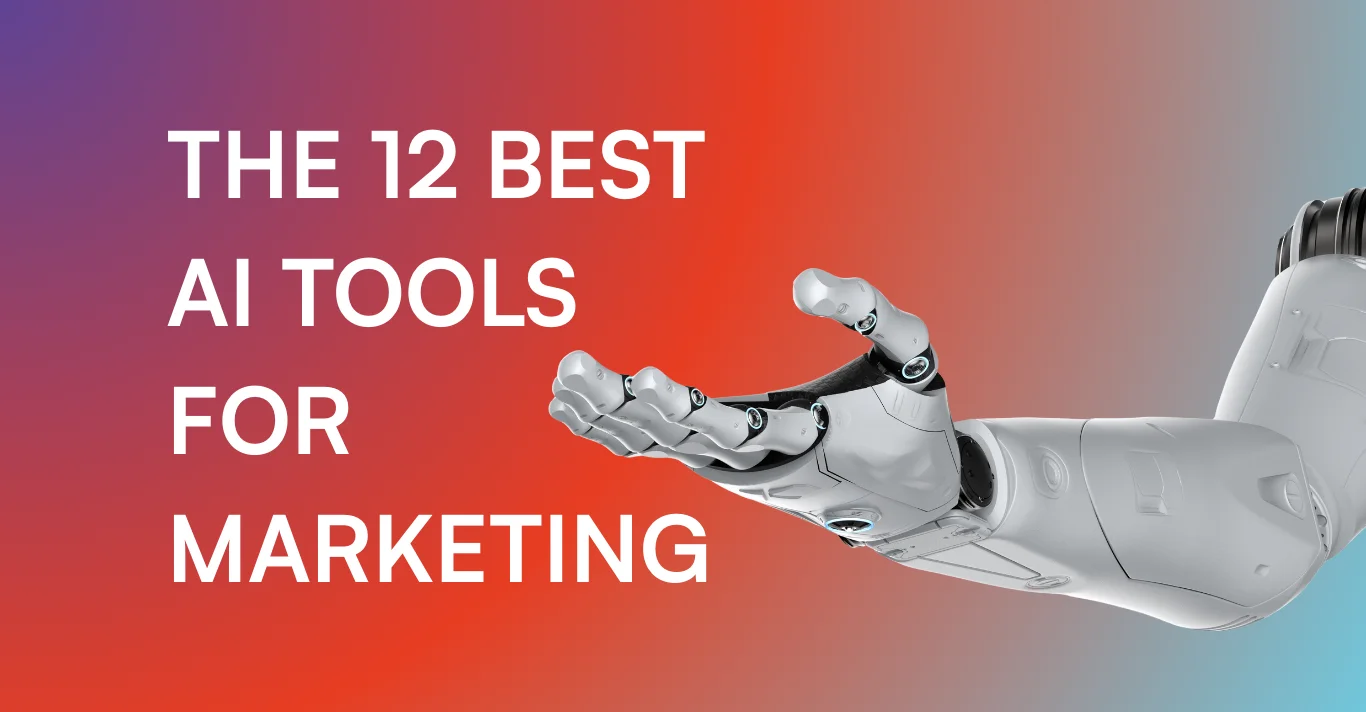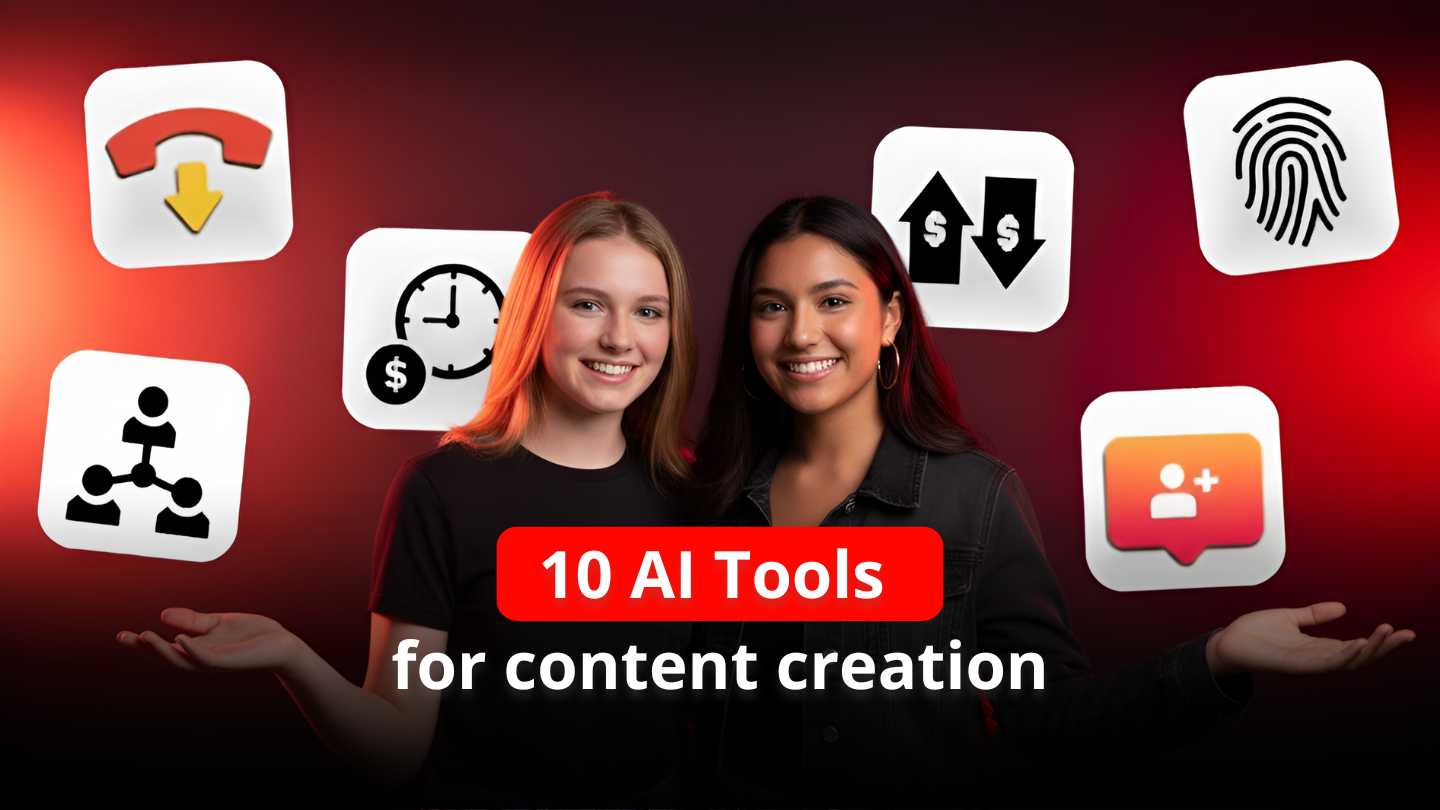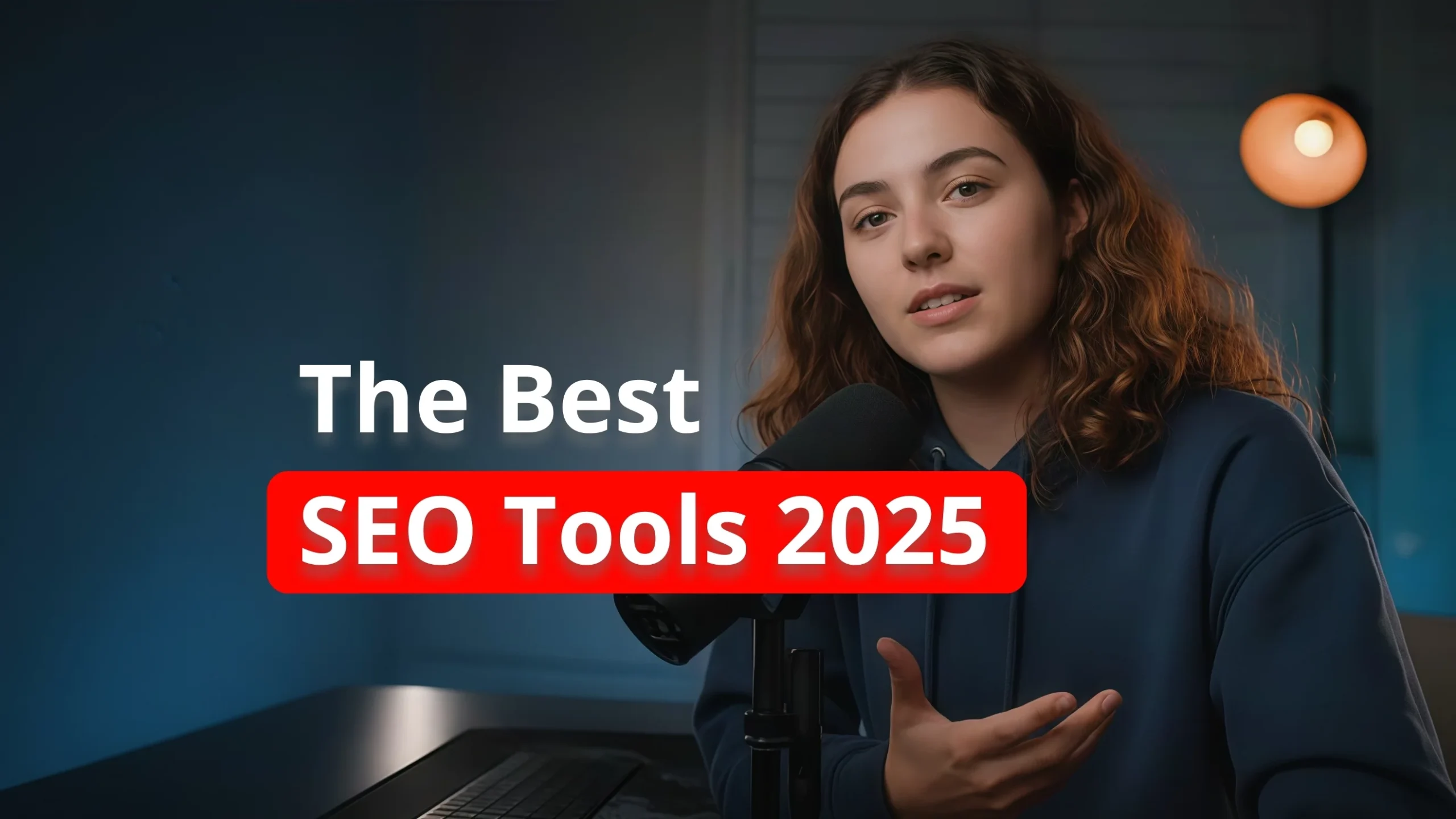Table of Contents
AI isn’t a “nice to have” anymore. Today, it’s the fastest shortcut to save time, boost campaigns, and scale content, without growing your team.
In this 2025 guide, I’ve pulled together 12 AI marketing tools that actually move the needle. From SEO and copywriting to automation, chat, and video. Each one comes with what it does, key strengths, limitations, and ballpark pricing, so you can choose smart, not just chase hype.
What’s inside?
- A clear roadmap to build your AI stack without drowning in options.
- Proven use cases for SEO, content, email, social, CRO, and automation.
- Actionable tips to avoid generic copy and track ROI from day one.
Let’s dive in!
The Benefits of AI in Marketing
- Smarter decisions: AI spots patterns, predicts demand, and recommends the right content and audiences.
- Efficiency & Scale: automate the repetitive stuff—briefs, drafts, tags, segments—so you can focus on strategy.
- True personalization: dynamic messages and offers tailored to behavior, channel, and context.
- Competitive edge: move faster with AI-powered A/B testing, optimized content, and nonstop social listening.
- Better customer experience: chat, email, and site respond in real time—with a voice that feels true to your brand.
- Resource Allocation: less manual work, more time for creativity, partnerships, and real business growth.
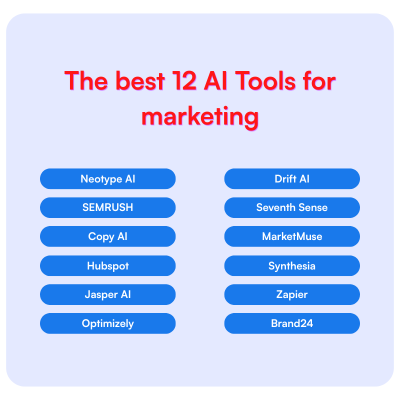
The 12 best AI tools for marketing 2025
1) HubSpot
Hubspot is an operations software that syncs, cleans, and organizes your contact data—while making it easy to automate your processes.
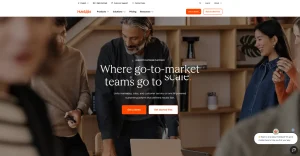
- Perfect for: Teams that want to unify CRM, content, email, and reporting.
- Strengths: AI-powered editor, workflows, lead scoring, and all-in-one analytics.
- Limitations: Setup curve; costs increase as contacts and features grow.
- Pricing: Freemium plus scalable paid plans.
2) SEMrush
Semrush is an all-in-one digital marketing platform packed with tools to boost your online presence—especially through SEO and PPC.
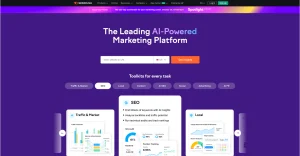
- Perfect for: Keyword research, SEO audits, and content briefs.
- Strengths: Clustering, gap analysis, and AI-powered content templates.
- Limitations: Power comes with complexity; may be overkill for basic needs.
- Pricing: Free trial plus professional plans.
3) Jasper
Jasper is an AI content creation platform built for marketers, writers, and businesses—helping you generate high-quality copy, images, and more for campaigns and blogs.
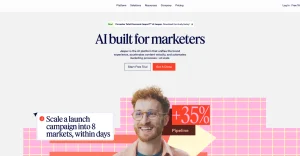
- Perfect for: Creating drafts in your brand voice with built-in style systems.
- Strengths: Workflows, brand memory, and consistent outputs.
- Limitations: Needs clear prompts and human review.
- Pricing: Seat- and usage-based plans.
4) Copy.ai
Copy AI is an AI writing tool that automates marketing copy and content creation.
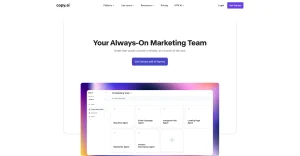
- Perfect for: Multichannel campaigns (ads, emails, landing pages) with ready-to-use templates.
- Strengths: Automations and recipes; fast time-to-value.
- Limitations: Outputs can feel generic without context; editing is a must.
- Pricing: Freemium plus team plans.
5) Drift
Drift uses chatbots and analytics to engage website visitors in real time, capture leads, and automatically book meetings—helping you speed up the sales cycle.
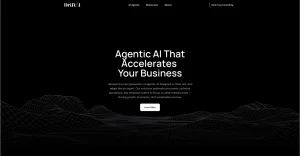
- Perfect for: B2B teams with assisted sales and live qualification.
- Strengths: Sales routing, instant meetings, and personalization.
- Limitations: Best ROI with mid-to-high traffic and ACVs.
- Pricing: Pro and Enterprise plans.
6) Seventh Sense
Seventh Sense is a marketing and sales intelligence platform that optimizes email delivery.

- Perfect for: Teams that want to optimize email delivery per user.
- Strengths: Models opens and engagement to lift rates and reduce fatigue.
- Limitations: Niche (email only); depends on your stack (HubSpot/Marketo, etc.).
- Pricing: Integration- and volume-based plans.
7) Optimizely
Optimizely is a website optimization platform powered by A/B testing and content personalization. In short, it helps businesses run experiments across web, apps, and connected devices.
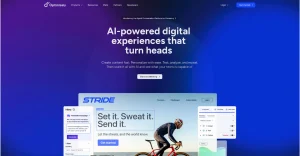
- Perfect for: Experimentation and dynamic experiences on web and app.
- Strengths: Testing, feature flags, and behavior-based segmentation.
- Limitations: Requires experimentation discipline and solid data.
- Pricing: From entry-level plans to enterprise.
8) MarketMuse
MarketMuse is an AI-powered content platform that helps marketers speed up content creation, optimization, and planning.
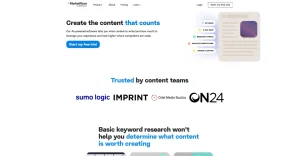
- Perfect for: Editorial planning, topic mapping, and semantic optimization.
- Strengths: Content inventory, content scoring, and prioritization.
- Limitations: Significant investment; requires adoption by editorial and SEO teams.
- Pricing: Freemium plus advanced plans.
9) Synthesia
Synthesia AI is a platform that uses artificial intelligence to turn text into realistic avatar videos—no cameras, actors, or studios needed.
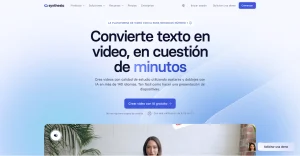
- Perfect for: Training, demos, and multi-language localization.
- Strengths: Templates, voice-over, and scalable video without shoots.
- Limitations: “Avatar” look may not fit every premium brand.
- Pricing: Seat- and usage-based plans.
10) Zapier
Zapier is an online platform that connects web apps with ease—even if you have zero coding skills.
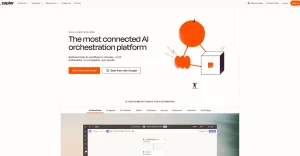
- Perfect for: Orchestrating apps (CRM, Ads, Sheets, Slack) with smart workflows.
- Strengths: 6,000+ integrations, AI-powered actions, and text parsing.
- Limitations: Task-based costs; watch out for limits and retries.
- Pricing: Freemium plus volume-based plans.
11) Brand24
Brand24 is a social listening and media monitoring tool that lets businesses track, analyze, and respond to online conversations about their brand, products, and competitors—in real time.
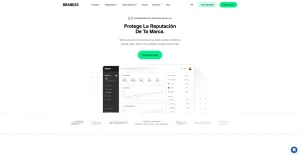
- Perfect for: Spotting mentions, trends, and risks in (almost) real time.
- Strengths: Sentiment analysis, conversation spikes, and reporting.
- Limitations: Noise-to-signal ratio in low-volume industries.
- Pricing: Tiered by number of mentions/projects.
12) Neotype
Neotype is the first AI platform that turns your content strategy into a competitive edge: create, automate, and optimize posts with professional quality and advanced SEO—powered by the W.R.I.T.E methodology and the H.U.M.A.N framework for more engaging, effective copy.
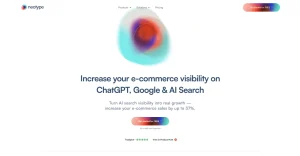
- Perfect for: SEO-optimized article publishing.
- Strengths: Automation, brand voice, content suggestions, SEO scoring.
- Limitations: Detailed prompts to get the most out of it.
- Pricing: free/freemium.
Learn more about Neotype’s AI for Marketing Agencies
How to choose your Marketing AI
- Goals, integration, and learning curve: Start with 1–2 measurable goals (e.g., +30% more posts per month or +20% higher chat response rate).
Make sure the tools connect with your CRM, CMS, and Ads.
Prioritize clear interfaces and templates to speed up onboarding. - Budget and ROI: Add up licenses + implementation time + monthly usage.
Estimate ROI from: (a) time saved, (b) conversion lift, (c) production savings (video, translations).
Start with freemium or trials—and only scale to annual plans once you’ve got traction. - Security, data, and compliance: Check access controls, activity logs, data handling, and anonymization options.
Define which inputs should never leave your environment (customer databases, PII).
Use templates that keep sensitive data safe.
FAQs
An AI marketing tool is software that uses language/vision models and analytics to automate and predict marketing tasks.
With 2–3 smart choices, you’ll cover 80%.
No. It multiplies their impact.
